THE WIND (1986)
A novelist is stalked by a psychopath one stormy night.
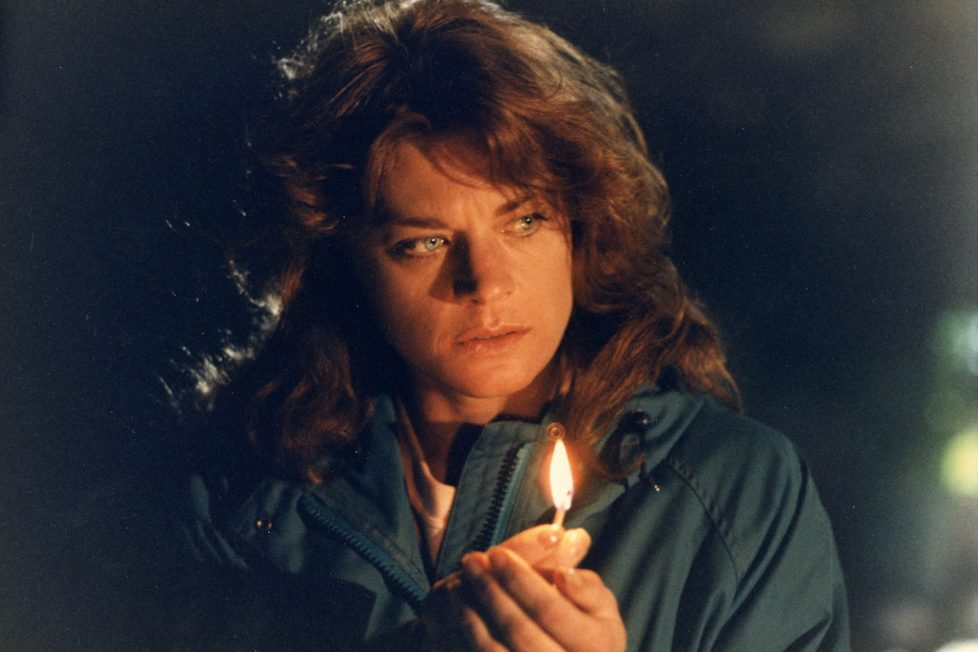
A novelist is stalked by a psychopath one stormy night.


The many dashes of originality that writer-director Nico Mastorakis and his team bring to The Wind aren’t enough to lift it above average slasher fare. But even if it fails to pass an essential test, as much of the time it’s simply dull, individual scenes nevertheless work well, and genre fans (especially those with a taste for cheesy) will find it satisfying.
The plot is pared to the bone, is not much more than a slightly developed elevator pitch. Sian (Meg Foster) is an American novelist, implicitly of the sensational-paperback variety, who relocates to a small Greek village to work on her next book, where she rents a house from Elias (Robert Morley), who warns her “don’t go roaming around at night” and “the locked closets don’t contain anything valuable”, etc.
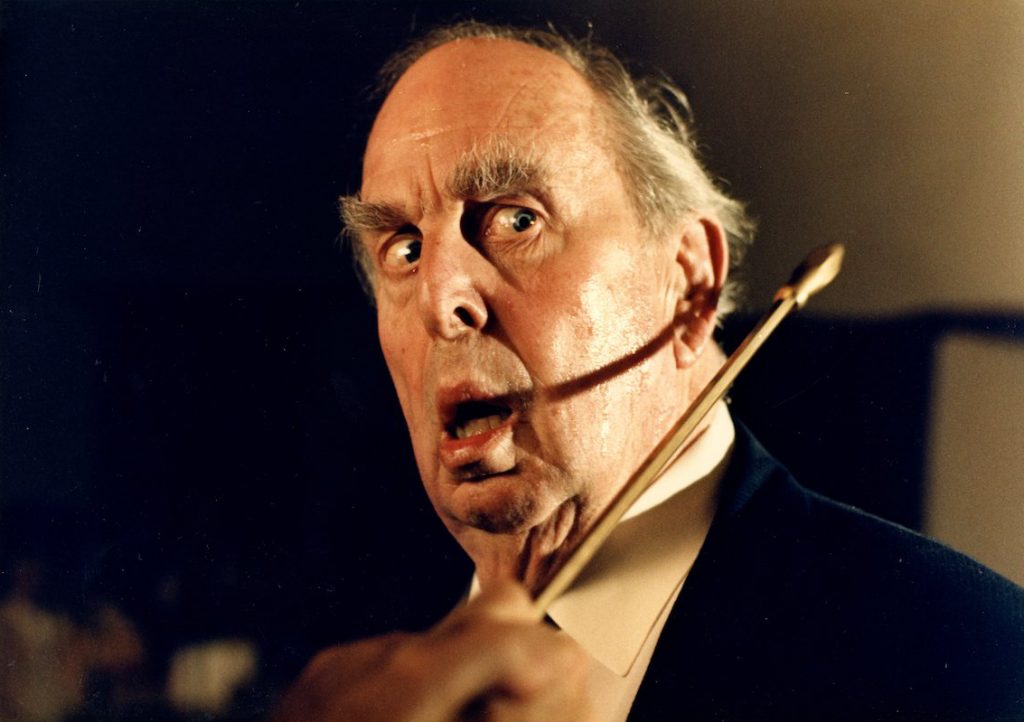
Soon enough, another American ex-pat called Phil (Wings Hauser) is stalking her with a scythe, which doesn’t seem particularly easy to conceal but has the benefit of looking exceptionally sinister even by the standards of unhinged serial killers.
It’s a dark and stormy night, literally, and Sian’s situation seems desperate until a comedy Greek policeman (Mihalis Giannatos) manages to connect her with Kesner (Steve Railsback), yet another American hanging around on the island for no plausible reason. He does get one of the best lines, however: “I’m going to check out those corpses of yours.”
The Wind treads an overfamiliar path, but at least it does so with a modicum of style. The locations are interesting and Mastorakis (along with his director of photography Andreas Bellis) inject atmosphere into a fundamentally unexciting story with careful compositions and well-judged camera angles. Never so exaggerated as to be noticeable, the camerawork manages to suggest threat, vulnerability, uncertainty, isolation, and all the other factors that mix together to give a slasher its emotional and psychological impact.
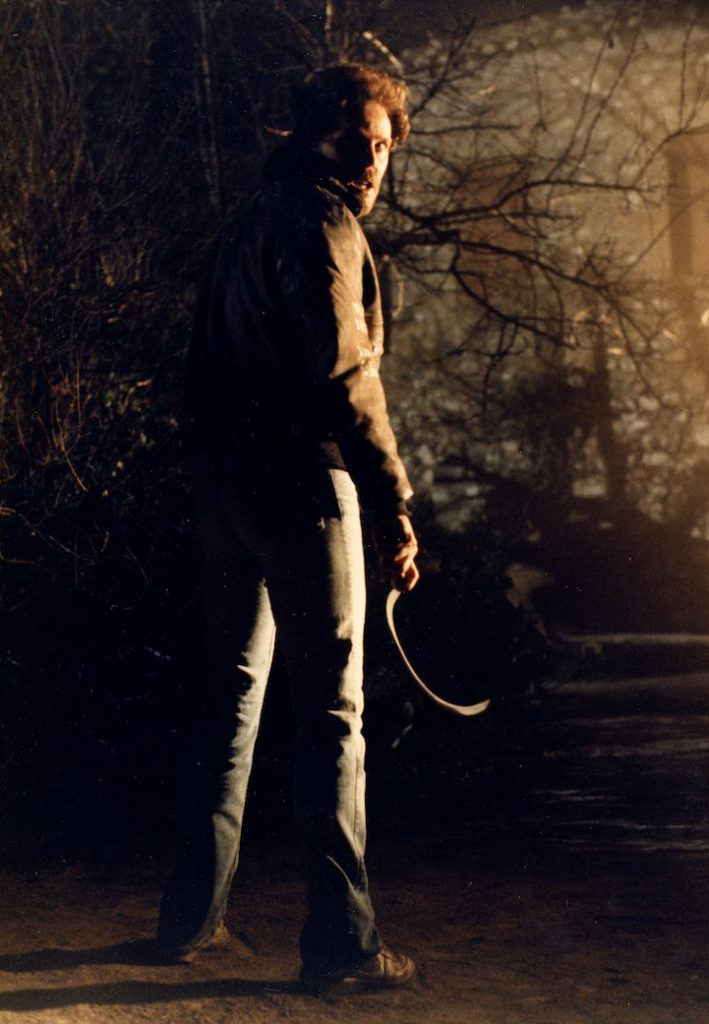
It’s not entirely devoid of clichés (the ominous moon seen through trees, the mysterious figure glimpsed disappearing round a corner…), but for the most part, when The Wind succeeds, it does so through its visuals more than anything else.
The score by Stanley Myers (an established composer with films like The Deer Hunter) and Hans Zimmer (a mere up-and-comer in ’86) is hit-and-miss but gives the film a distinctive flavour at times. The way that music is used is little more than formulaic—suspense here, surprise there, energetic forward movement when the heroine finally realises she has to fight back—but textures and instrumentation are frequently unexpected, again helping to rescue The Wind from mundanity.
Less useful are the leads, especially in the early parts of the movie. Foster’s unblinking blue eyes give her a Stepford Wife-like air that makes her delivery of lines seem more wooden than it actually is. On the plus side, her monologues work well (necessary to explain her thinking when there’s no-one else around) and she becomes steadily more credible as the plot calls for her to react more strongly. Her fear in scenes with Hauser, once he’s gone out-and-out psycho-killer, is convincing.
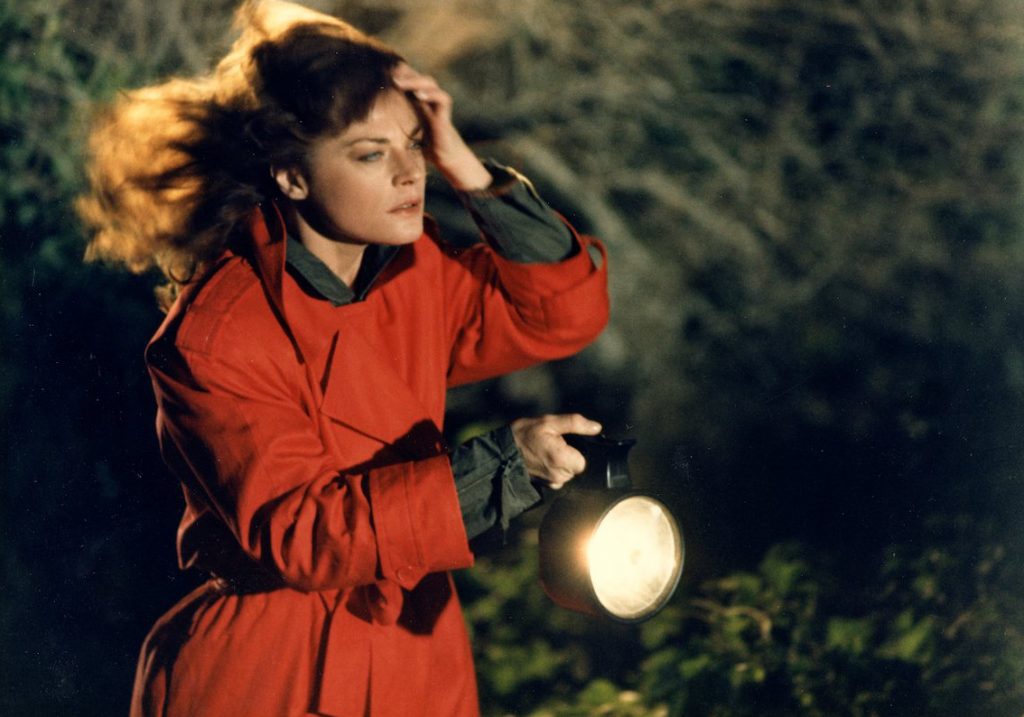
By contrast, Hauser’s performance has the opposite problem. He’s so obviously a baddie from his first appearance, and his ingratiating niceness so obviously fake, that he could’ve used some of Foster’s early restraint. There’s nowhere left for him to go but continued over-acting. And while her desperate instinct for self-preservation is persuasive enough, his murderous mania seems to conveniently come out of nowhere in order to create drama, rather than arising naturally from a three-dimensional person.
Morley, meanwhile, hams it up as only English actors of his generation could. A less self-parodying performance might have served the film’s tone better, but it’s difficult not to relish his pomposity. And there are more unintentional smiles for modern audiences, too, in The Wind’s depiction of a world where air travel was still glamorous and international phone calls were difficult.
Mastorakis never made it to the directorial A-list, thwarted perhaps by the poor reception of his potential breakthrough The Greek Tycoon (1978). His life—as a journalist, music promoter, lyricist for Vangelis— seems more interesting than his work. But there’s enough in The Wind, despite its failings, to mark him out as an intriguing filmmaker.
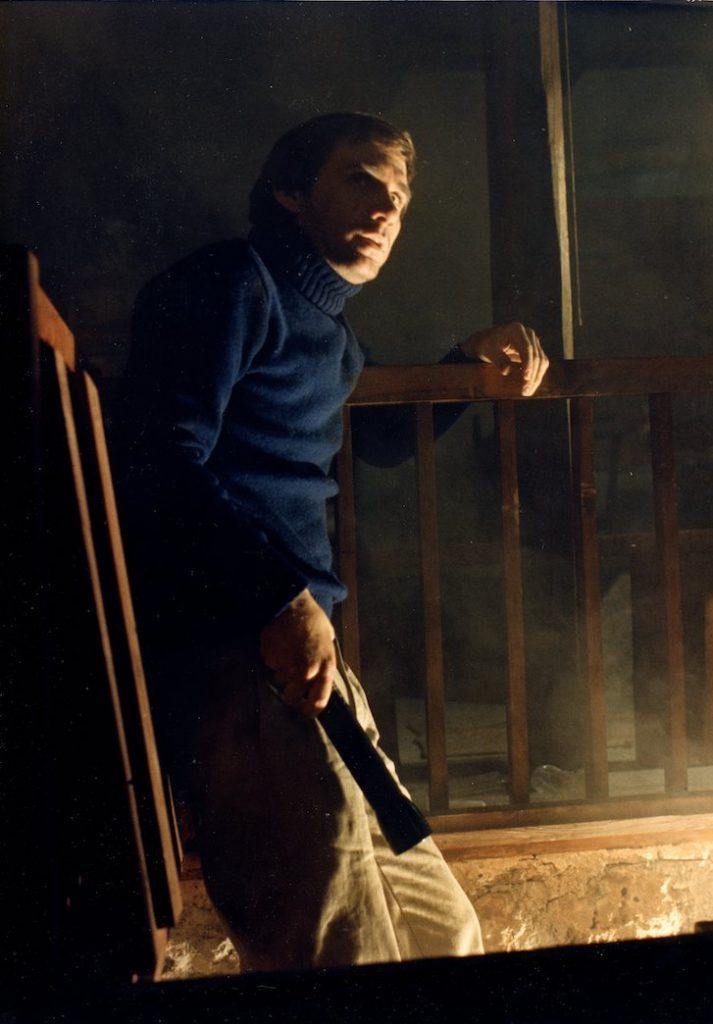
For example, one of the movie’s best passages is the very opening—oddly, since it’s superfluous, barely useful even in laying the groundwork for the main storyline. The camera creeps around the exterior of Sian’s home back in the US, then inside, showing us all the accoutrements of her comfortable and settled life while in voiceover she tells a long shaggy-dog story.
In some films that might be a perfect sequence…. but that film isn’t The Wind and perhaps that’s the heart of the problem here. Its many strengths never add up to a whole that suspends our disbelief. Phil’s character never makes much sense, nor do some peculiar incompetences on the part of Sian, nor the way that there seem to be far more Americans than Greeks in this corner of Greece where she presumably went to get away from her countrymen.
The emphasis put on the wind itself is strange, too: despite a possible hint of the supernatural at the end, it largely seems present as a blustery backdrop, not the movie’s central focus as the title might suggest. Similarly, the character of Sian’s boyfriend John (David McCallum) adds almost nothing, despite early prominence.
As a whole, then, it doesn’t hang together happily because it doesn’t totally work as a slasher movie as the twists and turns are too predictable, and the tension never ratcheted up high enough for long enough. However, there’s enough skill in the filmmaking and enough power in Foster’s performance by the end to make The Wind worth reissuing… for genre aficionados, at least.

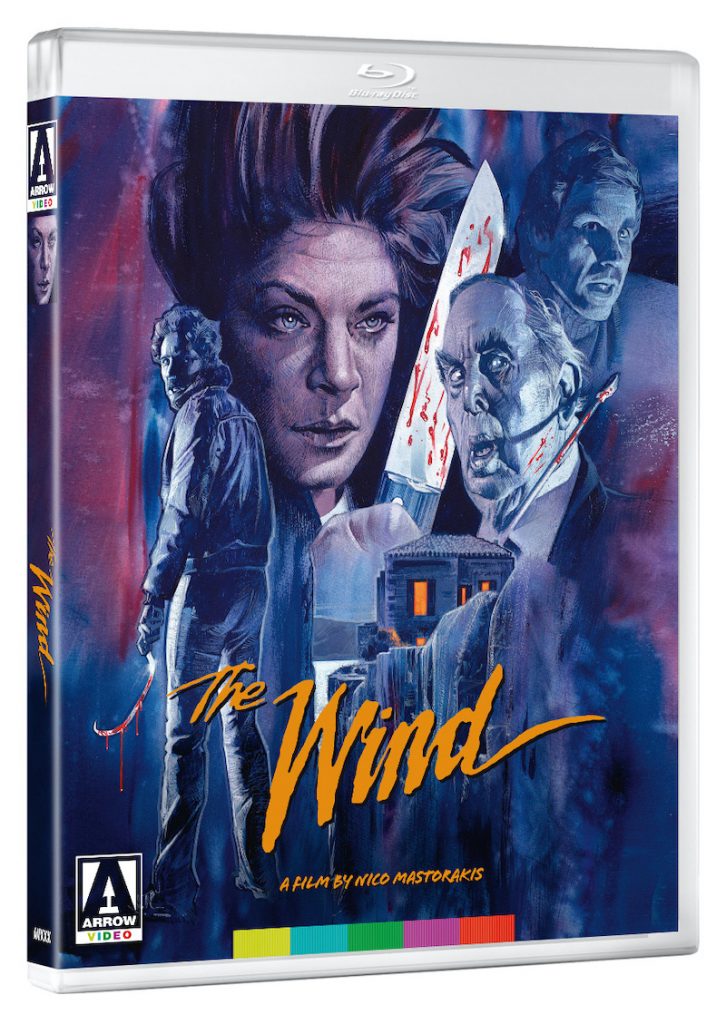
The special features below weren’t available for review due to difficulties acquiring physical discs in time during the coronavirus pandemic.

director: Nico Mastorakis.
writers: Nico Mastorakis & Fred Perry (story by Nico Mastorakis).
starring: Meg Foster, Wings Hauser, Robert Morley, David McCallum, Steve Railsback, Summer Thomas, Dina Giannakou, Mihalis Giannatos & John Michaels.
